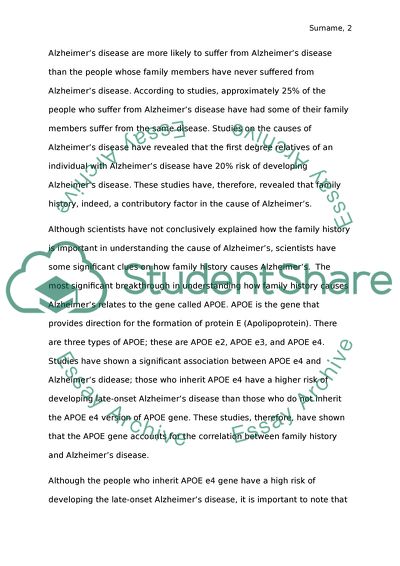Cite this document
(Main Aspects of Alzheimers Disease Essay Example | Topics and Well Written Essays - 1750 words, n.d.)
Main Aspects of Alzheimers Disease Essay Example | Topics and Well Written Essays - 1750 words. https://studentshare.org/health-sciences-medicine/1865207-alzahimars
Main Aspects of Alzheimers Disease Essay Example | Topics and Well Written Essays - 1750 words. https://studentshare.org/health-sciences-medicine/1865207-alzahimars
(Main Aspects of Alzheimers Disease Essay Example | Topics and Well Written Essays - 1750 Words)
Main Aspects of Alzheimers Disease Essay Example | Topics and Well Written Essays - 1750 Words. https://studentshare.org/health-sciences-medicine/1865207-alzahimars.
Main Aspects of Alzheimers Disease Essay Example | Topics and Well Written Essays - 1750 Words. https://studentshare.org/health-sciences-medicine/1865207-alzahimars.
“Main Aspects of Alzheimers Disease Essay Example | Topics and Well Written Essays - 1750 Words”. https://studentshare.org/health-sciences-medicine/1865207-alzahimars.


